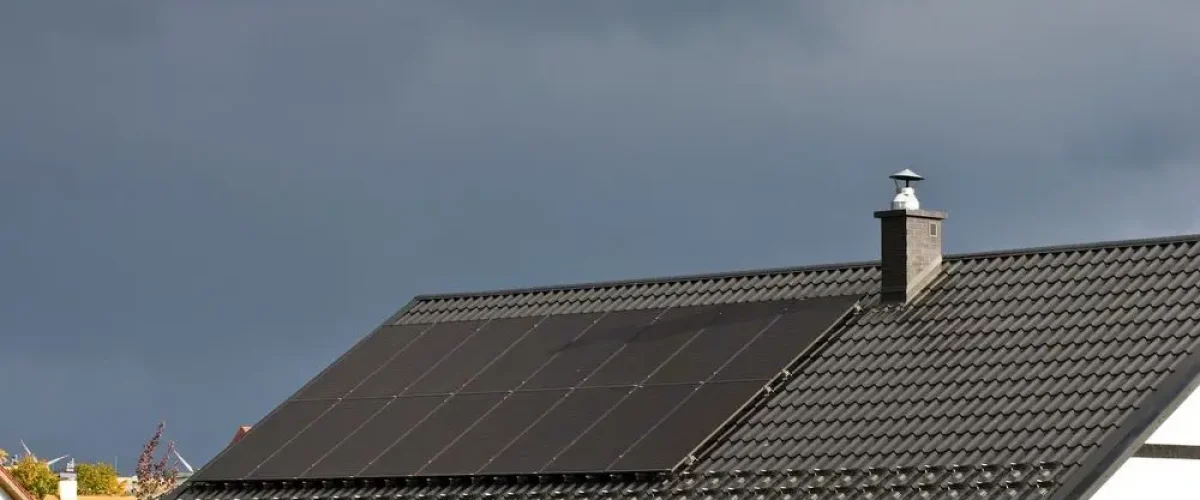Solar energy is usually related to a clear sky and sunny weather. One of the myths about solar panels, however, is that these panels are only effective when the sun is beaming. So, what happens on cloudy days? Do solar panels produce power even when it is cloudy? The answer is yes, although the effectiveness of the system can be minimized. This article will explain how solar panels work during cloudy weather, what influences their performance, and how many watts you can produce on a cloudy day.
How Solar Panels Work
Before we jump into the performance of solar panels on cloudy days, it is good to have a brief overview of how they operate. Solar panels collect the sunlight with the help of photovoltaic (PV) cells that turn light into electricity. These cells are constructed using semiconducting materials, typically silicon, that absorb the sun light and free electrons to generate an electric current.
The power generated by solar panels is influenced by the amount of sunlight falling on the panel. The panels can generate their full capacity on a sunny day. Nevertheless, during cloudy days, the panels receive less sunlight and this affects their performance.
Do Solar Panels Work on Cloudy Days?
Yes, solar panels do work on cloudy days. Although the amount of energy produced is lower than on sunny days, they are able to produce electricity even when the sky is covered. Solar panels are dependent on direct and indirect sunlight to generate energy. On cloudy days, the solar panels get diffused sunlight, that is, sunlight that has been scattered in the atmosphere by the clouds.
As a matter of fact, there are studies that have indicated that even on extremely cloudy days, the solar panels are still able to generate up to 20-25 percent of their total capacity. This means they can still produce usable electricity, though they might not be fully efficient.
The Impact of Cloud Coverage on Solar Panel Output
The density and the kind of cloud cover directly influence the amount of sunlight that can be captured by solar panels. The denser the clouds, the less sunlight can reach the panels and the more the efficiency will decrease. Solar panels can still work on a relatively high capacity on light, partly cloudy days as there is sufficient sunlight that is available to the panels to produce electricity.
Conversely, when the clouds are dense and dark, the sunshine will be greatly blocked and thus, the solar power generation will be reduced considerably. But still, in such conditions, solar panels will still generate electricity.
What is the Power Generated by Solar Panels on Cloudy Days?
What percentage of power your solar panels are going to produce on a cloudy day varies depending on a few factors, such as:
Type of Solar Panels: The new solar panels are more efficient and can work in low light areas. Monocrystalline and polycrystalline panels of high quality have a greater tendency to work in cloudy weather as compared to older or lower quality panels.
Cloud Cover: This is a key factor because of the density of the clouds. Light clouds may only decrease production by 10-20 percent, and dense clouds may decrease production by as much as 80 percent. Solar panels do not stop producing electricity even in dense cloud cover, only at a reduced rate.
Geographic Location: The location you reside in is also a major factor that will determine the amount of power that your solar panels will produce. Your panels will also work well, even though they will generate less power on average, if you live in a place with more cloud cover, e.g., in a temperate or marine climate.
Time of Day: The efficiency of solar panels also varies according to time of the day. Light in the morning or late in the afternoon, even on cloudy days, is less intense, and that means that the solar panels will produce less electricity than in the middle of the day, when the sun is higher in the sky.
Seasonal Changes: During winter seasons, when the sun is low in the sky, solar panels tend to generate less energy even during sunny days. On cloudy winter days, this decrease in production may be even greater.
Advantages of Solar Panels in Cloudy Weather
Although it is obvious that solar panels are not efficient enough to work on cloudy days, there are still some benefits of having a solar power system, even in the regions with high levels of cloud cover:
Lower Electricity Bills: Solar panels will continue to produce some electricity even when it is cloudy; this will lower your dependency on grid power. This will also save you lots of money over time on your electricity bills.
Eco-Friendly: Solar panels are environmentally friendly since they generate clean and renewable energy even when the sun is not bright. This will make your carbon footprint smaller and will make the environment cleaner.
Low Maintenance: Solar panels are not too demanding with regard to maintenance, and even under cloudy conditions, they do not need to be cleaned or serviced that often, which makes them an affordable and simple source of energy.
Energy Independence: When you use solar power, you are less dependent on the grid; this can be of particular advantage in areas where the power supply is not reliable or where power is expensive.
Tips to Maximize Solar Power on Cloudy Days
Although you cannot change the weather, you can do some things to ensure that you maximize your solar energy output even during cloudy days:
Maximize Panel Angles: Install your solar panels on an angle that will maximize the amount of sunlight they receive even when it is cloudy.
Energy-Efficient Appliances: Energy-efficient appliances should be used on cloudy days to cut down on your energy usage and maximize the amount of power that is being produced by the solar panels on your roof.
Battery Storage Investment: When you have a battery storage system, you will be able to save the extra energy produced on sunny days and utilize it on cloudy days.


